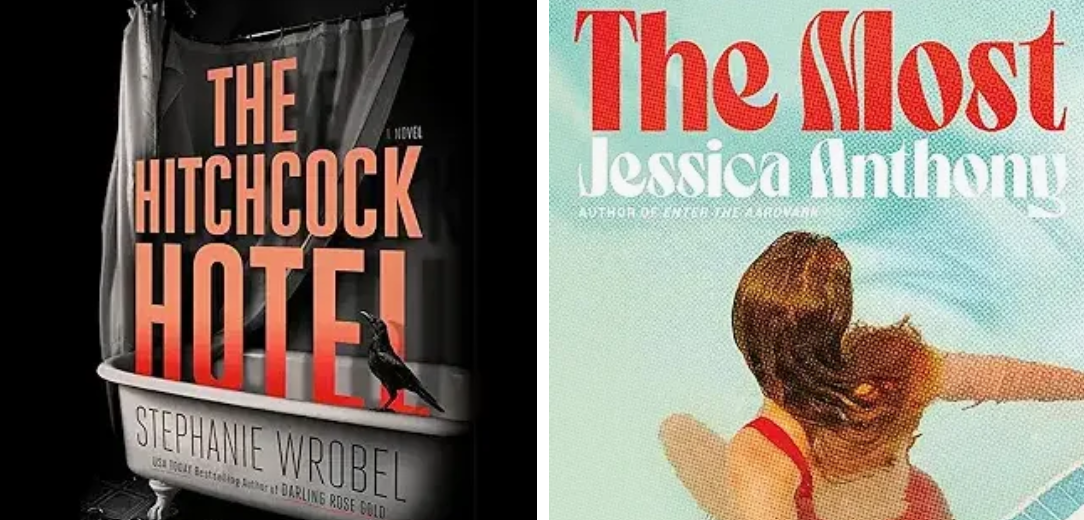Organization provides volunteer shoppers and readers, as well as internship opportunities.
by Adele Uphaus
MANAGING EDITOR AND CORRESPONDENT
Fewer than half of working-age people with blindless or low vision are employed, according to American Foundation for the Blind, and those who do work are more likely to work part-time than those without these disabilities.
In Virginia, there are 5.15 million people with vision difficulties between the ages of 18 and 65, according to the 2022 American Community Survey. That means there are millions of people who can work and want to work but are not working—a statistic that upsets Holly Frisch, founder and president of Volunteers for the Blind, a small nonprofit in Fredericksburg.
The organization provides volunteer readers and shopping assistance to people in the greater Fredericksburg area who are blind or have low vision.
Volunteer readers might read aloud to clients for pleasure or might help them read mail or instructions on medication bottles, household appliances or cleaning products. They might help clients fill out job applications, pay bills or conduct research in the library.
Volunteer shoppers might accompany the client to the store or supermarket, help them find the items they need and help them check out.
In addition to helping match clients with volunteers, VFB offers training to help both parties learn how to work with each other.
Peter Anderson, who has served on VFB’s board for 10 years, said the nonprofit’s services can create meaningful connections for its clients and the volunteers.
“There are limits for people (without these services),” he said. “People get shut in and there is fear. So it’s really beneficial.”
Kevin Cannon has volunteered with VFB for four years and has worked with four clients, ranging in age from their 20s to their 70s.
“I guess when I retired, I was looking for somewhere to volunteer, and I tried to find something that people weren’t helping with,” he said.
Cannon said it takes patience to learn what each client needs from their volunteer, but that the experience has allowed him to form close relationships with people he wouldn’t have otherwise encountered.
“I’ve enjoyed it and I’ve gotten a lot out of it too,” he said.
But the service Frisch might be most proud of is providing internship opportunities to help those with blindness gain valuable work experience.
Frisch said she feels lucky to have had a career as an occupational therapist for the Virginia Department for the Blind and Vision Impaired. She is passionate about providing others with the opportunity to fulfill their potential in the workforce.
“She gives a lot of people the chance to intern with her and learn simple things, basic skills for working in an office, and it gives them an opportunity to start building a resume,” said Anderson. “The other thing she’s been able to do is introduce to some of the local businesses that (people with blindness or low vision) are worthwhile employees.”
Margaret Skinner is one of Frisch’s former interns. While she was at VFB, she produced material in braille for the organization’s clients and learned crucial computer skills.
“The computer skills she learned here allow her more communication with the outside world and give her more confidence in herself,” Frisch said.
Skinner—like more than half of the population with blindness or low vision—is not currently working, though she’d like to be. Her last job was in 2015, rolling silverware for Famous Dave’s Barbecue in Woodbridge, where she lives, but the restaurant stopped using silverware.
Both Frisch and Skinner would love for Skinner to be able to continue as an intern. She used to get a ride to VFB in Fredericksburg with Frisch’s former assistant, who has since moved on to another position.
“(Transportation) is the only reason she’s not working with us now,” Frisch said. “Providing her transportation is only one of numerous projects for which funds are so desperately needed. It is not just a form of entertainment or socialization for Margaret. She would really like to acquire more computer skills, and we can arrange that if she is here.”
Marc Ross is both a client of VFB and a former intern. He said the services the small organization offers are “invaluable.” This holiday season, his volunteer shopper helped him buy gifts for his family, which meant he didn’t have to enlist their help and could surprise them—but on a larger scale, Frisch and VFB have helped him learn how to have a fulfilling life as a blind adult.
Ross became legally blind as a result of a traumatic brain injury. Frisch and VFB helped him navigate the admissions process to Louisiana Center for the Blind, a residential rehabilitation and training program for blind adults that is staffed primarily by blind professionals.
He then worked as an intern for VFB and said Frisch and her assistant were dedicated to helping him develop and master an organizational system that worked for him.
“It was such a problem until we came up with this system,” Ross said. “It felt so good to triumph over that.”
Frisch also “got him back into the community,” he said, by tasking him with helping her write and give a presentation on guide dogs to a local women’s business group.
Though Ross no longer works for VFB, he volunteers to give back to the organization by contributing to its regular “book and bake sale” fundraisers.
“It’s nice to be able to give back to (Frisch),” Ross said. “People don’t pay for her services. And she’s not just a good employer, she’s a friend.”

Local Obituaries
To view local obituaries or to send a note to family and loved ones, please visit our website at the link that follows.

Become One of the Elite Eighty

W.P. Kinsella, author of Shoeless Joe Jackson Goes to Iowa (you may know it better as the movie “Field of Dreams,”) said it best.
If you build it, they will come.
This year we built the FXBG Advance, and readers have responded by coming in ever-larger numbers.
We thank each and every one of you who have made the Advance a part of your day, and we’re excited to say that more-exciting announcements are just around the corner as we continue to innovate and expand our coverage of the region.
The donations of individual donors are central to our success, and we’re hoping to add 80 more by the end of the year.
Where does your money go?
It goes to support the great journalists we have – like Adele Uphaus – and the ones we look to hire in the year ahead.
If you can spare $8 a month, we’ll be both grateful, and reward your trust in us with more journalism, more stories, and more connections to organizations and people who make our region a great place to live.
If you can’t, thank you for reading the FXBG Advance!, and consider sharing us with your friends.
In 2024, let’s build an even better Advance – together!
Thank you for reading and supporting FXBG Advance.
-Martin Davis, Editor



